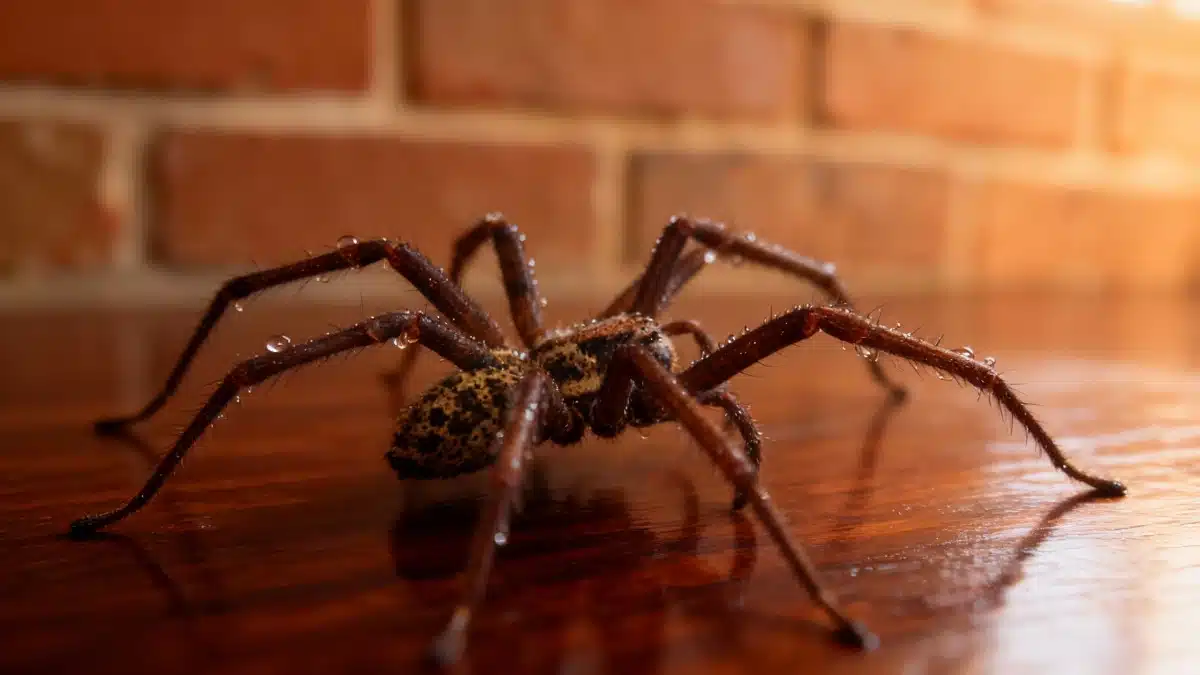Hold the shoe, step away from the rolled-up newspaper, and listen up: letting that spider stay in your home might just be the best decision you’ll make this week. I know what you’re thinking—it’ll take a miracle to convince you not to squash the next eight-legged intruder you spot. But before you declare your living room a spider-free zone, let’s unravel a few truths that could completely change your perspective.
Spiders: Not Just Unwanted Guests, But Key Roommates
Most people love to imagine their homes are little oases, perfectly cut off from the chaotic wilderness outside. Reality check: your home is actually the site of an invisible nature reserve—arachnid edition. There’s a surprising variety of spiders to be found indoors. Some wander in by accident and get stuck, some just pop by for a quick visit, but a few species have made themselves at home for good, living and even reproducing happily right under your nose (or your couch).
Discretion is the name of the game for these tiny housemates. Nearly every spider you meet isn’t trying to start a turf war—they’re not aggressive, and danger? Hardly. If anything, they’re offering you pest control on the house. Many feast on those annoying parasites you’d rather not have around, with some spiders even eating their own kind. It’s a bug-eat-bug world in there!
The Evidence Is In: Nearly Every Home Hosts Spiders
This isn’t just speculation. In a study of 50 houses in North Carolina, entomologists (including the author) made a creepy-crawly census. Result? Every single home had spiders. The standouts were the cobweb spider and the cellar spider—both remarkable in their own way. These species build intricate webs, patiently lying in wait for prey. And those cellar spiders? Occasionally, they’ll abandon their webs to actively hunt down other spiders trespassing in their domain, sometimes by mimicking the movements of an unsuspecting victim—talk about dinner theater!
Even generalist predator spiders, always ready for whatever meal stumbles by, provide a real service: they regularly capture nuisance organisms, including the kind of insects that spread disease (think mosquitoes). Some species of African jumping spiders have developed quite the taste for blood-filled mosquitoes in particular, which is honestly just heroic at this point.
Spider Phobia? You’re Not Alone (But It’s Manageable)
Let’s get real: being uneasy around spiders is normal. With all those legs and their venomous reputation, who can blame you? But here’s the key: most species have venom far too weak to trouble humans—assuming their fangs ever manage to penetrate your skin at all. Even entomologists can find themselves gripped by arachnophobia. Yet, some arachnologists manage to overcome this fear through direct observation and, yes, daily interaction with these fascinating creatures. If they can set aside their heebie-jeebies, maybe there’s hope for the rest of us too.
It might help to remember that spiders aren’t plotting against you. In fact, they go out of their way to avoid humans—after all, we’re much more dangerous to them than vice versa. Bites from spiders are exceedingly rare. There are a handful of species with particularly toxic venom (looking at you, black widow and brown recluse), but their bites are exceptional events and almost never lead to serious problems.
A Practical Approach: Coexist, Don’t Crush
If you just absolutely can’t abide sharing space with a particular spider—whether it’s in your home, apartment, garage, or anywhere else—there’s no need for carnage. Instead of flattening your spooky houseguests, try capturing them gently and releasing them outdoors. They’ll find somewhere else to hang out, and both sides will be happier—no squished legs, no guilt on your conscience.
But if you can stomach sharing your space, rest easy. Having spiders in your home isn’t just harmless, it’s completely normal. To be perfectly honest, even if you don’t see them, they’re still around—a silent army, keeping your habitat in balance. So, the next time you cross paths with a spider, consider taking the tolerant route. After all, they’ve been excellent roommates long before you moved in.

John is a curious mind who loves to write about diverse topics. Passionate about sharing his thoughts and perspectives, he enjoys sparking conversations and encouraging discovery. For him, every subject is an invitation to discuss and learn.






